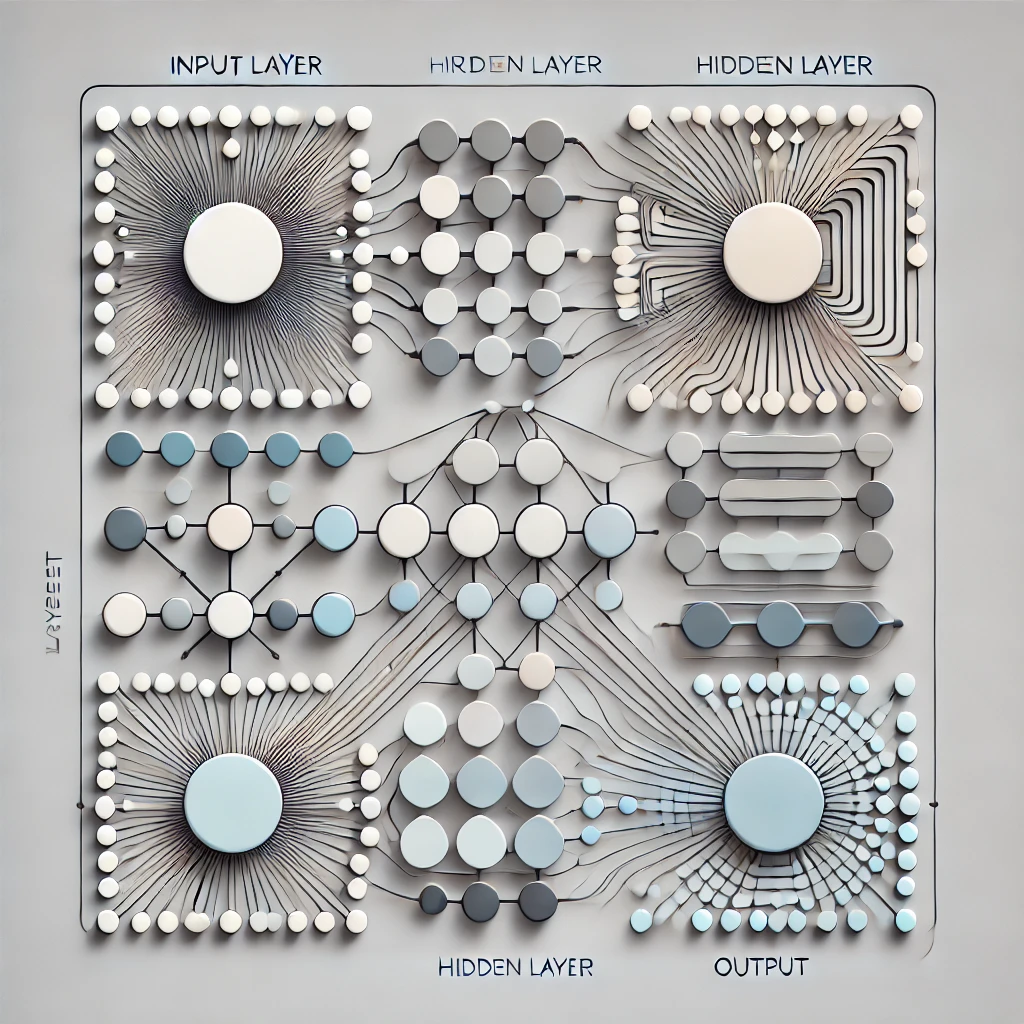Generative AI is streamlining the content production process (whether for text, image, or video), resulting in increased productivity for marketing teams. In fact, the market for AI in marketing was estimated to be worth $15.84 billion in 2021, and is expected to reach over $100 billion by 2028!
In this article, I’m going to outline the transformative impact that generative AI is having on marketing content creation.
What Is Generative AI?
Generative AI refers to a category of artificial intelligence models designed to create new content. This includes text, code, images, audio, video, and other forms of media.
While there are several generative AI tools available to the public, including Copy.ai and Jasper, amongst marketers, ChatGPT is by far the most popular. In fact, a recent survey of 1,000 marketers found that nearly 75% used AI tools, with more than 55% using ChatGPT!

The Impact of Generative AI On Marketing Content Creation
When the majority of marketing activities require the creation of written or visual content, it’s no surprise that generative AI is being used to streamline the process! Let’s delve into a few select case studies.
IBM and Adobe Firefly
Adobe’s generative AI, Firefly, can create stunning images based on simple text prompts. Technology company IBM leveraged Firefly to create marketing assets for its recent “Let’s Create” campaign. Using Firefly, Adobe’s marketing team generated 200 unique assets and over 1,000 variations in mere minutes!
The campaign was a roaring success, driving engagement that exceeded IBM’s previous benchmarks. IBM’s introduction of generative AI is anticipated to boost productivity by fostering greater collaboration between design and marketing teams, enabling them to generate high-quality content for personalised campaigns.
Michaels Stores
Michaels Stores, a US crafts retailer, developed an AI-powered content generation platform to better understand how different customer segments engage with different content. Their aim was to leverage generative AI to enhance customer engagement through personalised messaging.
The end result? Michaels saw a 41% increase in click-through rates for SMS campaigns and a 25% increase for email campaigns!
Tourism Marketing
Researchers have found that ChatGPT can create tourism marketing materials that are indistinguishable from those created by professional marketers. Furthermore, having assistance from generative AI enables tourism marketers to optimize the content production process, achieving greater efficiency.

Advantages, Limitations, and Risks
One major advantage of generative AI is its ability to produce a high quantity of marketing content without compromising quality! In this way, generative AI is fueling productivity and increasing efficiency.
Not only can AIs like ChatGPT create content based on text prompts, they can do so in an intelligent manner. For example, by analysing data sets comprising a company’s previous ad campaigns, AI can produce ad creatives that are likely to resonate with specific target audiences.
While there are several advantages to using generative AI in the content creation process, there are also risks.
One significant risk involves authenticity. If brands are caught passing off AI-generated content as human-made, their reputation could suffer. Transparency is crucial, as users have the right to know whether the content they’re engaging with is human or AI generated. Misleading readers can result in a serious loss of trust.
There is also a risk that AI generated content will contain incorrect information. A well-known case is that of a New York lawyer who cited fake cases generated by ChatGPT in a legal brief filed in federal court! These examples highlight the need for human oversight in the content generation process.
Finally, marketers are also worried about privacy risks, and the ability for generative AI tools to collect and store sensitive data. Some companies have even banned ChatGPT altogether for fear of employees sharing sensitive information about the company or their customers in their prompts.
The Future of Generative AI in Marketing Content Creation
With 91% of US ad agencies already using or experimenting with generative AI, it’s safe to say that it’s here to stay. But what does the future look like?
According to technology expert Dr. Oliver Gassmann, the future looks bright!
“We will see improvements in the quality and variety of content it produces due to better neural networks. It will work more alongside humans, enhancing creativity rather than replacing it” .
Dr Oliver Gassmann, Generative AI and AI-Based Business Model Innovation.
Gassmann also believes that the quality of generative AI output will increase extremely fast, and that many more applications will be created as generative AI models begin to expand into other modalities, beyond text and image creation.
Furthermore, right now, most organisations leverage generative AI by paying for pre-trained models that they access online or through an API. However, in the future, more companies are likely to train open-source models on their own data sets. This will enable them to create AI agents that excel in company-specific tasks.
A Paradigm Shift for the Marketing Industry
Not only do AIs like ChatGPT drive productivity by speeding up the creation of quality content, they enable the swift production of targeted messaging designed to appeal to specific customer segments. As generative AIs develop, it’s exciting to ponder the changes ahead, not only for marketers, but society at large.
References:
Adobe Firefly – Free Generative AI for creatives. (n.d.). Adobe. Retrieved August 16, 2024, from https://www.adobe.com/products/firefly.html
Baar, A. (2024, June 24). Forrester: 91% of US ad agencies are currently using, exploring generative AI. Marketing Dive. Retrieved August 16, 2024, from https://www.marketingdive.com/news/forrester-generative-ai-marketing-agencies-report/719285/
Botco.ai. (2023, May 4). Nearly Three-Quarters of All Marketing Departments Use Generative AI Tools, Botco.ai Survey Finds. PRWeb. Retrieved August 16, 2024, from https://www.prweb.com/releases/nearly-three-quarters-of-all-marketing-departments-use-generative-ai-tools-botco-ai-survey-finds-863152119.html
Butler, R. (2023, May 4). Where Are Marketers on the Generative AI Adoption Curve? CMSWIRE. Retrieved August 16, 2024, from https://www.cmswire.com/digital-experience/where-are-marketers-on-the-generative-ai-adoption-curve/
Dencheva, V. (2023, January 6). Global AI in marketing revenue 2028. Statista. Retrieved August 16, 2024, from https://www.statista.com/statistics/1293758/ai-marketing-revenue-worldwide/
Eliot, L. (2023, January 27). Generative AI ChatGPT Can Disturbingly Gobble Up Your Private And Confidential Data, Forewarns AI Ethics And AI Law. Forbes. Retrieved August 16, 2024, from https://www.forbes.com/sites/lanceeliot/2023/01/27/generative-ai-chatgpt-can-disturbingly-gobble-up-your-private-and-confidential-data-forewarns-ai-ethics-and-ai-law/
Harkness, L., Robinson, K., Stein, E., & Wu, W. (2023, December 5). The power of generative AI for marketing. McKinsey & Company. Retrieved August 16, 2024, from https://www.mckinsey.com/capabilities/growth-marketing-and-sales/our-insights/how-generative-ai-can-boost-consumer-marketing
Heitmann, M. (2024). Generative AI for Marketing Content Creation: New Rules for an Old Game. NIM Marketing Intelligence Review, 16(1), 10-17. https://doi.org/10.2478/nimmir-2024-0002
IBM Transforms Content Creation and Digital Marketing Using Adobe Firefly’s Generative AI. (2024). IT Var News. https://www.proquest.com/magazines/ibm-transforms-content-creation-digital-marketing/docview/2942001670/se-2
Moran, L. (2023, May 30). Lawyer cites fake cases generated by ChatGPT in legal brief. Legal Dive. Retrieved August 16, 2024, from https://www.legaldive.com/news/chatgpt-fake-legal-cases-generative-ai-hallucinations/651557/
Nielsen, C. (2023). Generative AI and AI-Based Business Model Innovation. Journal of Business Models, 11(2), 46-50. https://www.proquest.com/scholarly-journals/generative-ai-based-business-model-innovation/docview/2897293391/se-2
Prof. Dr. Oliver Gassmann. (n.d.). University of St.Gallen. Retrieved August 16, 2024, from https://www.unisg.ch/en/university/about-us/organisation/detail/person-id/c2a0af62-6513-4359-b215-253b931bf00b/
Susarla, A., Gopal, R., Thatcher, J. B., & Sarker, S. (2023). The Janus Effect of Generative AI: Charting the Path for Responsible Conduct of Scholarly Activities in Information Systems. Information Systems Research, 34(2), 399-810. https://doi.org/10.1287/isre.2023.ed.v34.n2
Zhang, Y., & Prebensen, N. K. (2024). Co-creating with ChatGPT for tourism marketing materials. Annals of Tourism Research Empirical Insights, 5(1). https://doi.org/10.1016/j.annale.2024.100124

